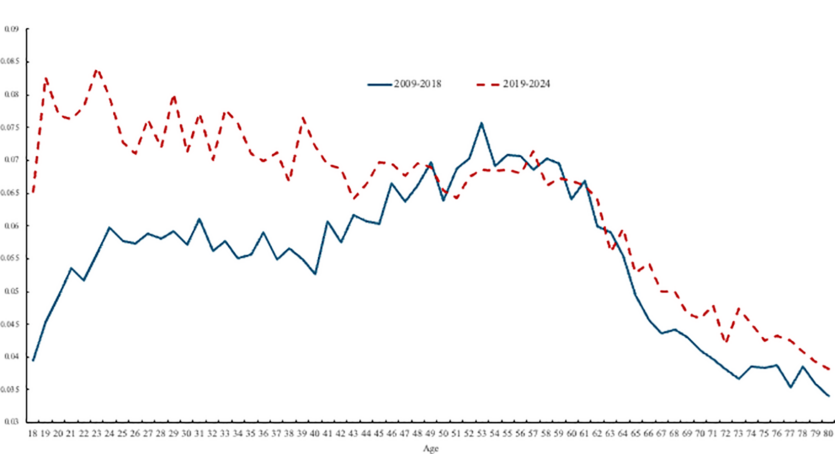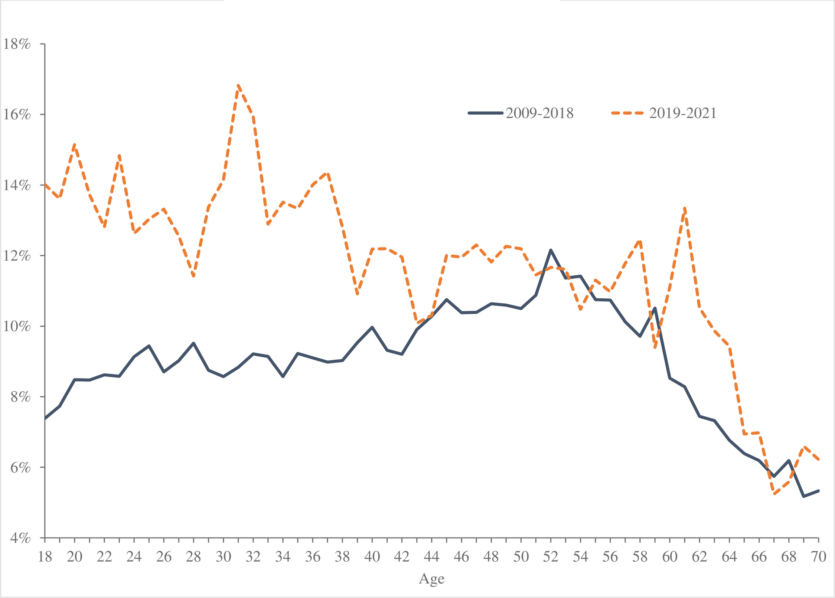
American researchers from Dartmouth College declare the disappearance of such a familiar and well-known phenomenon, as the “midlife crisis”.
A large-scale study, led by by David Blanchflower, includes data from the United States, the United Kingdom, and dozens of other countries. The researchers argue, that the phenomenon, known as the “midlife crisis,” expressed in the increase in stress, anxiety, and depression, that peaks in middle age and then declines as we get older, no longer exists.
Since 2008, researchers have been constantly monitoring A U-shaped relationship between age and well-being. Typically, the level of happiness decreases during the transition from youth to middle age, and then increases again in older age.
A number of recent studies show, that the level of well-being among young people around the world is declining. Blanchflower and his colleagues examined the results of surveys conducted in the United States and the United Kingdom, including mental health.
The U.S. data set was compiled from information on more than 10 million american, adults surveyed by the Centers for Centers for Disease Control and Prevention (CDC) in the period from 1993 to 2004. Data for the UK are based on the results of a longitudinal household survey, that is still ongoing. As part of this study, its authors observed 40 thousand households between 2009 and 2023.

The analysis of these results showed, that in both the United States and the United Kingdom, the peak of dissatisfaction among middle-aged citizens is no longer observed. Instead, the level of dissatisfaction with their own lives is now observed in younger people. Among people aged 40-50 years and older, mental health indicators remain relatively stable.
The researchers analyzed data on nearly 2 million people from 44 countries, including the United States and the United Kingdom, as part of the Global Minds mental health study. This data covers the period from 2020 to 2025. It shows, that there is no longer a midlife crisis worldwide.

The reasons for the disappearance of the phenomenon, known as the “midlife crisis”, are not fully understood, but according to researchers, among the likely causes, is the long-term impact of the global recession on the employment prospects of young people, insufficient funding for mental health services and support, the consequences of mental health problems, caused by the pandemic COVID-19, the widespread use of social media.
“Our work is the first to show, that the deterioration of youth mental health in recent years means that today, in both the US and the UK, mental illness is highest among young people and declines with age. This is a huge change compared to the past, when the peak of mental health problems was in middle age. The reasons for this change are debatable, but we are concerned, that there is a serious mental health crisis among young people today, that needs to be addressed”, — the authors of the study emphasize.
The results of the study are published in the journal PLOS ONE
Source: SciTechDaily

Spelling error report
The following text will be sent to our editors: